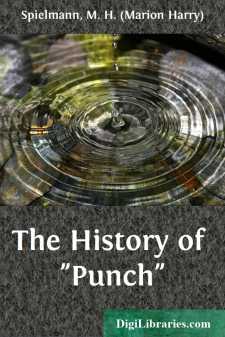Categories
- Antiques & Collectibles 13
- Architecture 36
- Art 48
- Bibles 22
- Biography & Autobiography 813
- Body, Mind & Spirit 142
- Business & Economics 28
- Children's Books 14
- Children's Fiction 11
- Computers 4
- Cooking 94
- Crafts & Hobbies 4
- Drama 346
- Education 46
- Family & Relationships 57
- Fiction 11829
- Games 19
- Gardening 17
- Health & Fitness 34
- History 1377
- House & Home 1
- Humor 147
- Juvenile Fiction 1873
- Juvenile Nonfiction 202
- Language Arts & Disciplines 88
- Law 16
- Literary Collections 686
- Literary Criticism 179
- Mathematics 13
- Medical 41
- Music 40
- Nature 179
- Non-Classifiable 1768
- Performing Arts 7
- Periodicals 1453
- Philosophy 64
- Photography 2
- Poetry 896
- Political Science 203
- Psychology 42
- Reference 154
- Religion 513
- Science 126
- Self-Help 84
- Social Science 81
- Sports & Recreation 34
- Study Aids 3
- Technology & Engineering 59
- Transportation 23
- Travel 463
- True Crime 29
The History of "Punch"
Description:
Excerpt
INTRODUCTORY.
"If humour only meant laughter," said Thackeray, in his essay on the English humorists, "you would scarcely feel more interest about humorous writers than the life of poor Harlequin, who possesses with these the power of making you laugh. But the men regarding whose lives and stories you have curiosity and sympathy appeal to a great number of our other faculties, besides our mere sense of ridicule. The humorous writer professes to awaken and direct your love, your pity, your kindness; your scorn of untruth, pretension, imposture; your tenderness for the weak, the poor, the oppressed, the unhappy. To the best of his means and ability he comments on all the ordinary actions and passions of life almost."
It may surely be claimed that these words, consecrated to his mighty predecessors by the Great Humorist of Punch, may be applied without undue exaggeration to his colleagues on the paper. Though posing at first only as the puppet who waded knee-deep in comic vice, Punch has worked as a teacher as well as a jester—a leader, and a preacher of kindness. Nor was it simple humour that was Punch's profession at the beginning; he always had a more serious and, so to say, a worthier object in view. This may be gathered from the very first article in the very first number, the manifesto of the band of men who started it, contributed by Mark Lemon, under the title of—
"THE MORAL OF PUNCH."
"As we hope, gentle public, to pass many happy hours in your society, we think it right that you should know something of our character and intentions. Our title, at a first glance, may have misled you into a belief that we have no other intention than the amusement of a thoughtless crowd, and the collection of pence. We have a higher object. Few of the admirers of our prototype, merry Master Punch, have looked upon his vagaries but as the practical outpourings of a rude and boisterous mirth. We have considered him as a teacher of no mean pretensions, and have, therefore, adopted him as the sponsor for our weekly sheet of pleasant instruction. When we have seen him parading in the glories of his motley, flourishing his bâton in time with his own unrivalled discord, by which he seeks to win the attention and admiration of the crowd, what visions of graver puppetry have passed before our eyes!... Our ears have rung with the noisy frothiness of those who have bought their fellow-men as beasts in the market-place, and found their reward in the sycophancy of a degraded constituency, or the patronage of a venal ministry—no matter of what creed, for party must destroy patriotism....
"There is one portion of Punch's drama we wish was omitted, for it always saddens us—we allude to the prison scene. Punch, it is true, sings in durance, but we hear the ring of the bars mingling with the song. We are advocates for the correction of offenders; but how many generous and kindly beings are there pining within the walls of a prison whose only crimes are poverty and misfortune!...
"We now come to the last great lesson of our motley teacher—the gallows; that accursed tree which has its root in injuries. How clearly Punch exposes the fallacy of that dreadful law which authorises the destruction of life! Punch sometimes destroys the hangman, and why not? Where is the divine injunction against the shedder of man's blood to rest? None can answer! To us there is but One disposer of life. At other times Punch hangs the devil: this is as it should be. Destroy the principle of evil by increasing the means of cultivating the good, and the gallows will then become as much a wonder as it is now a jest....
"As on the stage of Punch's theatre many characters appear to fill up the interstices of the more important story, so our pages will be interspersed with trifles that have no other object than the moment's approbation—an end which will never be sought for at the expense of others, beyond the evanescent smile of a harmless satire."
A portion of this programme was duly eliminated by the abolition of the Fleet and the Marshalsea; and it must be admitted that Punch has long since forgotten his declared crusade against capital punishment. But he has been otherwise busy. His sympathy for the poor, the starving, the ill-housed, and the oppressed; for the ill-paid curate and the worse-paid clerk; for the sempstress, the governess, the shop-girl, has been with him not only a religion, but a passion....


